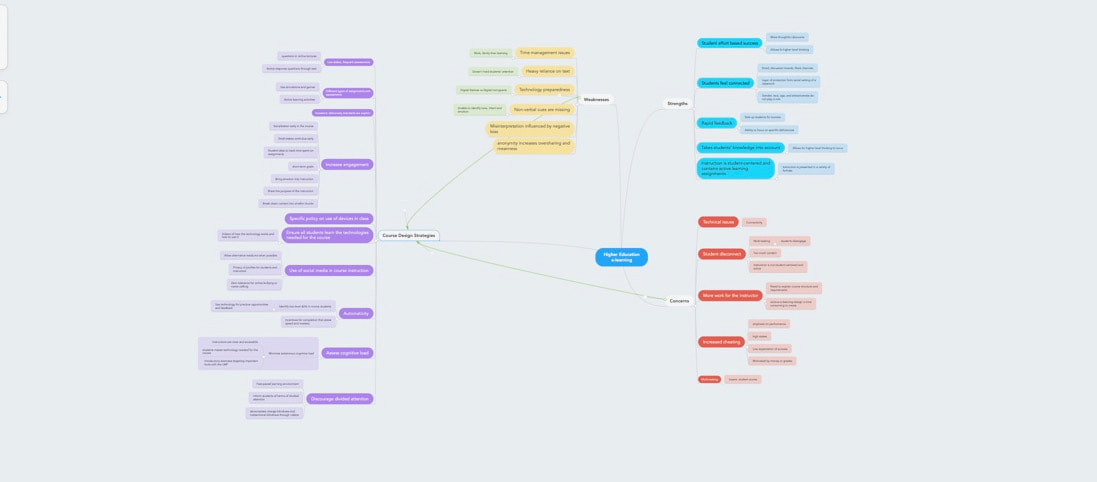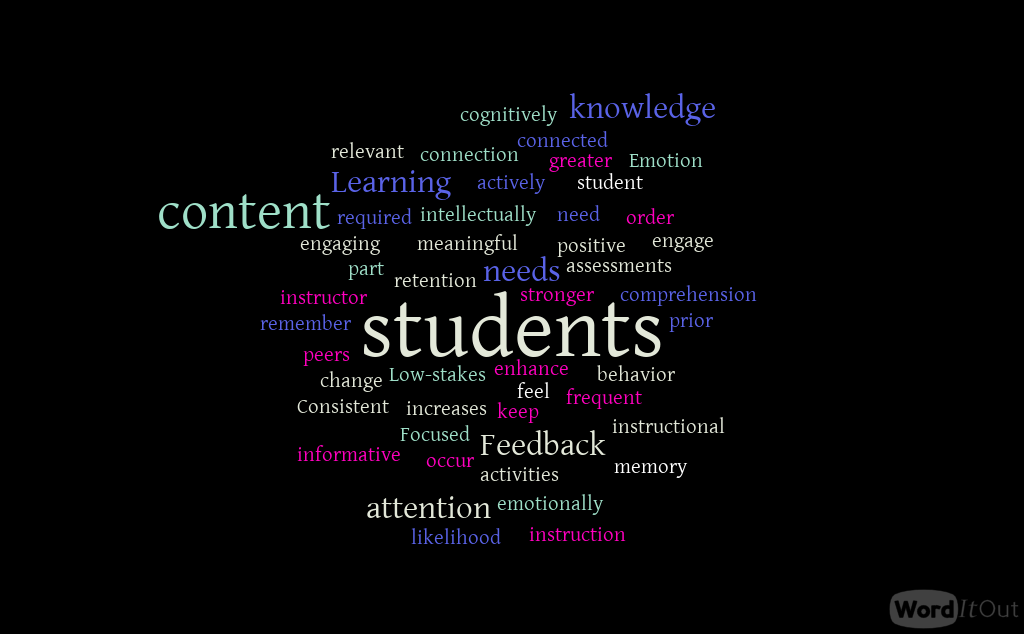The following higher education technology integration plan reflects my philosophy of educational leadership and approach to the teaching and learning process in higher education. It also illustrates my comprehensive understanding of the basic components o f a student-centered higher education ecosystem. The plan contains the following elements:
- MindMap illustrating my schema of e-learning in higher education.
- WordCloud articulating the ten most important considerations in the instructional design process in higher education.
- Padlet Word Wall providing insight into my theory of online teaching and learning in higher education.
- Pinterest Board providing online information and resources which provide a foundation for the plan.
- Video Presentation outlining my Technology Integration Plan.
MindMap
The following mind map illustrates my schema of e-learning in higher education. The first tier represents the strengths, weaknesses, concerns, and course design strategies that address the weaknesses and concerns.
Click the image below for an interactive version of the MindMap.
Click the image below for an interactive version of the MindMap.

Word Cloud
The following word cloud articulates what I believe are the ten most important considerations in the instructional design process in higher education. You will note the most important consideration is students followed closely by content, learning, knowledge, feedback, and attention.

Padlet Word Wall
The following word wall provides insight into my theory of online teaching and learning in higher education. The resources in the word wall include articles, images, and videos that influence my theory.
Pinterest Board
The following Pinterest board provides online information and resources on the student-centered higher education ecosystem, which provides a foundation for my technology integration plan.
Technology Integration Plan Presentation
In this video screencast outlining my Technology Integration plan, I discuss why we want to integrate Adobe Creative Cloud into our non-production classes focusing on the role technology can play in students' cognitive processes that affect their thinking and learning.